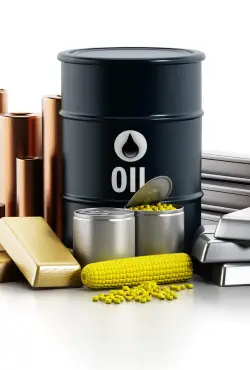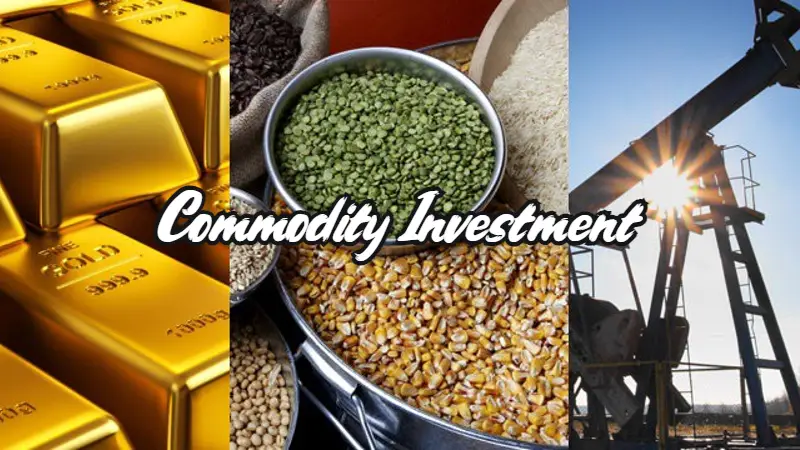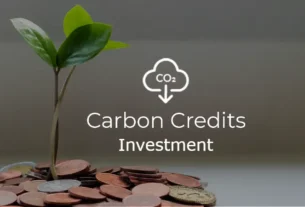Commodity Investment
Looking to invest in commodity ? Not sure how and where to get started? Then we can help. Our team has put together a beginners guide to commodity investment n New Zealand. This will help you get started with commodity investment in New Zealand. Learn from some of the top commodity investors and see how you can make money trading in commodity like gold, silver copper and much more

COMMODITY INVESTMENT
Learn the basics of investing in commodity in New Zealand : Commodity Investment 101
Learn what is commodity investment and how you can make money with it in New Zealand : What Is Commodity Investment
Learn what beginner investors like you should consider when getting into commodity investment in New Zealand : Beginners Guide
Learn how beginners like you can start investing in Commodity in New Zealand. : How To Invest In Commodity
Check out what are the risk and what are the returns of commodity investment in New Zealand. Is it worth investing in Commodity in 2022
Find out who regulates the commodity trading markets in New Zealand : Regulations
Find out where to get started with trading in commodities in New Zealand: Get Stared
List of some of the main advantages of investing in commodity in New Zealand : Rewards of Commodity Investment
Commodity Investing 101
If you’re trying to figure out how to diversify your portfolio, commodity investment can be a great option. As an investor, it’s important to look at all your options before making any big decisions. While everyone is familiar with stocks and other securities, most mainstream investors neglectcommodities as being part of their overall financial picture.
Several factors make commodities attractive investments. Commodities, in their various forms, have been around since pre-historic times. They have been traded globally ever since.
As an emerging market that depends on imports, New Zealand can benefit from the lower prices of many commodity markets. Commodity investment can be a good investment for beginners if you know where to look.
What is a commodity investment?
Commodity investment is an investment in physical substances, like precious metals or agricultural goods, typically traded on commodities exchanges around the world.
Commodities include; items like gold, silver, gas, and oil; as well as agricultural goods like coffee, sugar, and corn.
Commodities are mostly used as inputs in the production of other goods or services. The price of a commodity good is typically subject to uncontrollable supply and demand market forces rather than to the influence of a national government or central bank.
Buyers and sellers of commodities are generally in the business of producing or consuming the underlying goods. They use the markets for hedging against potential future price fluctuations. For instance, a company that operates an oil refinery might hedge against rising crude oil prices by buying futures contracts in the commodity markets.
In the financial markets, commodities trading is the buying and selling of these same goods on a short-term basis or speculating on their future price movements. Aside from individuals investing in physical gold bullion or rare coins, most commodity trading is done through futures contracts or exchange-traded funds.
What Beginner Investors Should Consider
When you invest in commodities, you hope that some specific factor will drive up the price. You want to watch for specific events that are expected to affect the prices of certain products. Here are some factors that drive commodities prices.
Supply and demand dynamics :
The prices of commodities tend to be more volatile than stocks and bonds due to changes in supply and demand. For example, corn and wheat prices can fluctuate significantly due to seasonal changes in production and demand for those crops.
If there’s a drought affecting wheat production in the United States, for example, that will drive up the price of wheat and you could see a spike in investments related to wheat.
The price elasticity of supply :
For example, the supply of oil is relatively inelastic because it’s difficult and expensive to find new oil supplies or increase production from existing fields. That’s why oil prices can be so volatile – a natural disaster like a hurricane or political unrest in an area like Libya can dramatically reduce the available supply of oil and send prices soaring.
The strong demand for oil means the price is susceptible to any changes in the availability of supply – even a slight fall in the amount that’s available can have a considerable impact on prices.
Political situations :
When countries impose sanctions on each other, they can ban the sale of certain types of commodities or materials as part of that sanction. If one country is imposing sanctions on another, that could result in a shortage of some materials and drive up the price of those products in the international market.
How to invest in commodities in New Zealand
1. Exchange-Traded Funds (ETFs)
ETFs are stocks that track an index or a commodity. The performance of the stock will depend on the performance of the underlying asset, so if you believe that gold prices will go up, you can buy an ETF that tracks gold prices. The ETF will (in theory) rise in value if gold prices do.
ETFs are typically issued by fund managers, though in some cases, they can be issued by other companies – such as investment banks.
How to invest in ETFs :
You can buy into an ETF through your broker, like a stock. There are a range of brokers to choose from, including some that are online only. You can also buy them through your bank.
If you do not have access to a broker or bank, you can apply directly to an investment provider for an ETF (not all investment providers offer direct sales).
Investment risk –the value of the units may fall from time to time, resulting in a loss of your initial investment if you sell at a low point in the market. This isn’t unique to ETFs.
Profit potential: Your return will depend on the performance of the chosen ETF. Investment providers’ websites can help you find out the fees you’ll pay and the returns on their different ETFs over time.
2. Commodity Futures Contracts
A future is a contract to buy or sell an asset (like corn) sometime in the future at a price that’s agreed upon today. If you think corn will be more expensive in the future, you would buy a futures contract. If you think it will be cheaper, you would sell one.
The most common reason for speculating on commodities is that you expect to make money if prices go up. It can also help protect against losses when prices go down.
How to Invest in Futures :
To trade futures, you need a commodity broker specializing in trading these types of contracts. You can ask your adviser for recommendations or check out the New Zealand’s Financial Markets Authority website.
Risks: The biggest risk with futures is that they require a lot of money upfront, which could leave you in debt if your predictions don’t come true and the price of your commodity goes down instead of up. This is why most investors combine futures with other investments that are less risky, like cash or bonds.
Potential for profit: The price movement of futures is determined by supply and demand, economic factors, or market events. If you think the prices are going up, you buy; if you think they are going down, you sell.
3. Trade commodities with CFDs
CFD share contracts between a buyer and a seller that establish the difference in value between an asset at the time of contract and its value at a future point in time. The buyers and sellers don’t take ownership of the asset themselves – instead, it’s simply used as a basis for setting a price for the contract.
Contracts-for-difference have become popular throughout New Zealand because they allow investors to bet on the future price of an asset without having to own it directly. For example, if you think coffee will be more valuable next month than it is today, you can buy a coffee CFD from a broker. If your prediction turns out to be correct, you’ll make money. If not, you’ll lose money instead.
Risk vs. Return
The profit potential of this investment strategy is very high – but so is the risk involved. You’re betting on something unpredictable by nature – there’s no way of knowing what will happen in this investment.
CFDs are available for trading 24 hours a day, five-and-a-half days a week – that’s longer than any other instrument.
Commodity Trading in New Zealand
There are several financial markets that allow trading in commodities. The largest is the New Zealand Futures and Options Exchange (NZX) which trades in agricultural commodities and financial futures and options. Other venues include the Agricultural Commodity Exchange, which trades farm products, and the Power Exchange, which trades electricity.
The largest commodity market in New Zealand is the Fonterra Milk Futures Exchange, which trades dairy products, including whole milk powder, skim milk powder, and anhydrous milk fat. Commodities are traded on the exchange electronically.
Commodity investment Regulations
The Financial Markets Authority (FMA)has a role in promoting good financial service practices and standards and encouraging fair and transparent markets.
Where can you trade commodities in New Zealand?
Today, there are several different ways to trade commodities online in New Zealand, including:
Trading on the exchange – Traders can choose to trade on the exchange itself or through an online broker.
Trading via your broker – If you have an account with a brokerage firm, you may be able to trade commodities through them. Some brokers also offer online platforms where you can place orders and get quotes.
Trading via a platform – A platform is a website that allows traders to conduct business online without having to go through a broker. This is usually done by placing bids and offers on specific commodities.
What are the benefits of investing in commodities?
There are many benefits to investing in commodities. These include:
Liquidity: Commodities are traded on the exchange, and therefore they can be bought and sold at any time during market hours.
Flexibility: Commodities can be held in the form of a physical asset or via derivatives (for example, futures contracts or options).
Diversification: Commodities help investors diversify their portfolios, as they demonstrate a low correlation with other asset classes such as equities, bonds, and cash.
Protection against inflation: The returns from commodities generally rise with inflation, allowing them to act as a hedge against rising prices.
Commodity Investment For Beginners
Overall, diversification of your investment portfolio is a crucial part of investing. Without it, your risk profile could be high, and your returns lower than they could be otherwise. While commodities are largely considered risky investments by many, the upside can be considerable if the market stays on its current path.



